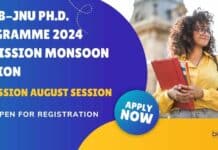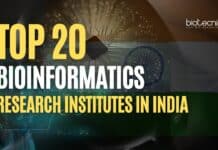UNESCO-Russia Mendeleev International Prize In The Basic Sciences
UNESCO-Russia Mendeleev International Prize In The Basic Sciences. Interested and eligible applicants can check out all of the details on the same below
This call expires in
STATUTES 0F THE UNESCO-RUSSIA MENDELEEV INTERNATIONAL PRIZE
IN THE BASIC SCIENCES
Article 1 – Purpose of thé Prize
The purpose of the UNESCO-Russia Mendeleev International Prize in the Basic Sciences is
to recognize and reward major achievements in terms of development, diffusion, and
international cooperation in the basic sciences, which had a significant transformational impact on a regional or global scale.
The Prize aims to promote and honour the basic sciences, defined to include the disciplines
of chemistry, physics, mathematics and biology, and as providing the foundation on which
scientific knowledge can be propagated and which are fundamental to the advancement of
innovation and sustainable development.
The proposed Prize contributes to generating scientific research, technology and innovation, as well as pushing the production and application of scientific knowledge to the centre of societal and économie development, in line with the United Nations 2030 Agenda for Sustainable Development.
The Prize aims to recognize and reward achievements that are conducive to socio-economic transformation
and development on a regional or global scale, based on –(i) excellence in research in thé basic sciences fields;
(ii) basic sciences éducation and popularization;
(iii) international or régional coopération in thé basic sciences.
The Prize has the ambition to be gender transformative in the sense that candidatures of women scientists will be encouraged, through the network of the International Basic Sciences Programme (IBSP), category 2 centres, UNESCO Chairs in science, International Scientific Unions and Universities, in line with UNESCO’s Global Priority on Gender Equality. The objective of the Prize is in conformity with UNESCO’s policies and is related to the Programme of the Organization in the field of the sciences, including the basic sciences, technology and innovation and knowledge for sustainable development.
The Prize intends to serve as a lever for strengthening global capabilities in science, as well as highlighting rôle models capable of attracting youth into basic sciences studies and careers, and empowering them in the fields of chemistry, physics, mathematics, and biology.
The Prize represents above all an enduring legacy of the International Year of the Periodic Table of Chemical Elements led by UNESCO, with a lasting awareness and appreciation of the basic sciences and their fundamental role in providing solutions to development challenges in the implementation of the United Nations 2030 Agenda for Sustainable Development.
The Prize is named after Dmitri Mendeleev whose life and career imbedded the three components of research and education, cooperation, and scientific and technological knowledge dissemination, which are reflected in the criteria of attribution of the Prize, giving it a unique value.
The proposed Prize compiles with the Revised Overall Strategy for UNESCO Prizes as adopted by the Executive Board.
Article 2 – Designation, periodicity, geographical distribution and amount of the Prize
- The Prize shall be entitled “UNESCO-Russia Mendeleev International Prize in thé Basic
Sciences”. - The Prize shall be funded by the Government of the Russian Federation and shall consist of a recurrent payment of USD 850, 000 per year for its six-year period (2020-2025), which shall cover both the monetary value of the Prize and the costs of administering the Prize. A gold medal and a diploma will be given to each of the recipients. Any interest that may accrue shall be added to thé overall contribution.
- All funds received and the interest accrued thereon shall be kept in a special interest-bearing account for the Prize (see financial regulations in Annex II).
- The full staff support and operating/management costs of the Prize, including all costs related to the administration and public information activities, and thé overhead costs to be applied and charged against the funds in the special account, estimated at USD 350,000 shall be fully covered by the Russian Federation. The related special account is to be established under the financial regulations for the Prize.
- The Prize shall be awarded every year to two individual prize-winners at each edition, on an initial basis for three biennia (six editions of the Prize in total).
- The Award Ceremony of the Prize should be organized through in-kind contributions from the Russian Federation. All costs of the Award Ceremony will be the responsibility of the Russian Federation.
Article 3 -Conditions/Qualifications of candidates
The candidates shall have earned recognition for their significant achievement/contribution to –
(i) research in the basic sciences in the form of a published communication,
(ii) basic sciences education and dissemination;
(iii) International or regional cooperation in the basic sciences.
Prizes may be conferred upon two individuals only who have promoted basic sciences advancement in education, research or international coopération for societal transformation.
Article 4 – Designation/Selection of Prize-winners
The prize-winners shall be selected by the Director-General of UNESCO on the basis of the
assessments and recommendations made to him/her by an international Jury. Particular attention should be given to women candidates.
Article 5 – Jury of the Prize
- The jury shall consist of seven independent members being personalities with a recognized réputation in the field covered while also taking into considération the need for équitable geographical distribution, gender equality and the principle of non-payment of honoraria. They shall be appointed by the Director-General of UNESCO for a two-year period for a maximum period of six years, with a possibility to renew each of them. Représentatives and relatives of Members of the Executive Board cannot be appointed as jurors. Jurors involved in a real or potential conflict of interest shall récuse themselves from further deliberations or be asked by the Director-General to do so. The Director-General replace members of thé jury for this reason
- The Jury shall elect its own chair and deputy chair. Members shall receive no rémunération for their work but will receive allowances for travel and accommodation when réquired. A quorum of five jurors présent will be required for jury deliberations to proceed. The working languages for jury délibérations will be English and French.
- The jury shall conduct its business and deliberations in conformity with these Statutes and shall be assisted in the performance of its task by a member of the UNESCO Secrétariat designated by the Director-General. Decisions shall be taken by consensus to thé extent possible and otherwise by secret ballot until a simple majority is obtained. A member shall not take part in the vote concerning a nominated candidate from his or her country.
- Thé Jury shall meet once a year for délibération on thé Prize-winners.
- Thé jury shall send an assessment on thé nominations and accompanying recommendations to thé Director-General of UNESCO at thé latest two months before thé award ceremony.
Article 6 – Nomination of candidates
- When UNESCO has received thé funding of thé prize as well as thé staff support and
operating/management costs of thé Prize, as indicated in Article 2 above, thé Director-General of UNESCO shall officially invite thé submission of nominations to thé Secrétariat of thé Prize, by 15 March every year, from thé governments of Member States, in consultation with their National Commissions, as well as from non-governmental organizations maintaining official partnerships with thé Organization, from UNESCO Chairs, category 2 centres, international scientific unions and universities. - Nominations shall be submitted to thé Director-General by thé governments of Member States, in consultation with their National Commissions, by non-governmental organizations maintaining official partnerships with UNESCO and active in relevant fields covered by thé Prize, by UNESCO Chairs, category 2 centres, international scientific unions and universities. A self-nomination cannot be considered.
- Each nomination shall be accompanied by a written recommendation, which shall include, in English or French, inter alia:
(a) a description of thé candidate’s background and achievements;
(b) a summary of thé work or thé results of thé work, publications and other supporting
documents of major importance, submitted for considération;
(e) a définition of thé candidate’s contribution to thé Prize’s objectives
Article 7 – Procédure for thé awarding of thé Prize
- Thé Prize shall be awarded by thé Director-General or his/her représentative at an official ceremony held for that purpose in alternation at UNESCO’s premises at Headquarters (whenever possible during thé Général Conférence or thé Executive Board) and in thé Russian Fédération. In thé extraordinary case where this is not possible, UNESCO shall choose a suitable place in any member state of UNESCO for thé award ceremony. UNESCO shall présent to thé prize-winners a financial award of USD 500,000 as well as a gold medal and a diploma. UNESCO shall officially announce thé names of thé prize-winners and highlight their achievements.
- If work being rewarded has been produced by several persons, thé prize shall be awarded to thé principal authors/contributors. In no case may a prize amount be divided between more than two persons.
- Thé prize-winners, if possible, shall give a lecture on a subject relevant to thé achievement for which thé prize has been awarded. Such a lecture shall be organized during or in connection with thé Prize ceremony.
- Thé work produced by a person since deceased shall not be considered for a prize. If, however, a prize-winner dies before he has received thé prize, then thé prize may be presented posthumously.
- Should a prize-winner décline thé prize, thé jury shall submit a new proposai to thé DirectorGénéral.
Article 8 – Sunset clause – mandatory renewal of the Prize
- Six months prior to the agreed end of the term of the Prize, the Director-General of UNESCO together with the donor will undertake a review of all aspects of the Prize and determine its continuation or termination. The Director-General will inform the Executive Board of UNESCO about the results of this review.
- In case of termination of the Prize, any unspent balance shall be returned to the donor unless otherwise agreed, in accordance with the Financial Régulations of the Prize.
Article 9 – Appeals
No appeals shall be allowed against the decision of UNESCO with regard to the award of the prize. Proposals received for the award of a prize may not be divulged.
Article 10 – Amendments to the Statutes of the Prize
Any amendment to the present Statutes shall be submitted to the Executive Board for approval.
How to Apply –
Nominations should be forwarded to the Indian National Commission for Cooperation with UNESCO (INCCU) latest by 28th February 2022 at the following address for further consideration and onward transmission to UNESCO Headquarters, Paris, France.
Mr Saroj Kumar Choudhary
Under Secretary to the Government of India
Ministry of Education
Department of Higher Education
Room No. 203-A ‘C’ Wing
Dr. Rajendra Prasad Road
Shastri Bhavan, New Delhi – 110001
Contact No. – +91-011- 2338 4442
E-mail – [email protected].
Click here for the notification
Editor’s Note: UNESCO-Russia Mendeleev International Prize In The Basic Sciences. Please make sure that you are subscribed to the Biotecnika Times Newsletter and our YouTube channel to be notified of all of the latest in the industry. Follow us on all of our social media like Twitter, Telegram, Facebook and Instagram.








































